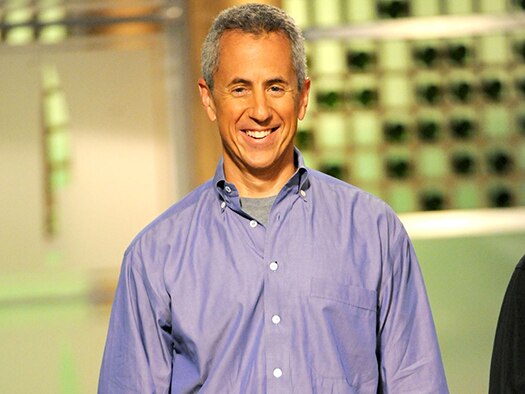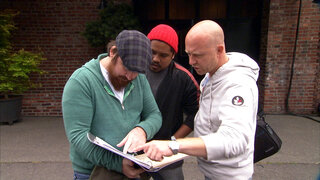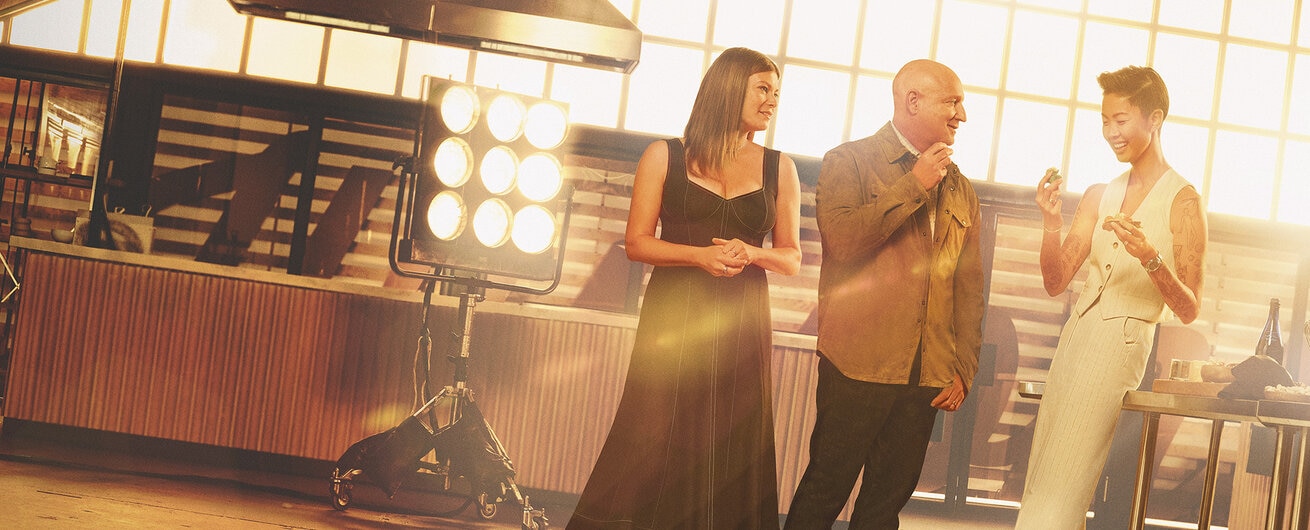Danny Meyer: Tom Colicchio Is a 'Tender' Softie
Exclusive: The restaurant savant opens up about 'Top Chef' judging and his service peeves.

You'd be hard-pressed to find a more apt and qualified guest judge to bring in for the Restaurant Wars episodes of Top Chef than Danny Meyer. To paraphrase cheftestant Joshua Valentine, he's basically the best restaurateur in the world whose name has become not just synonymous with delicious food, but with restaurants that offer impeccably precise and welcoming service as well. Oh, and back in the day he opened a little restaurant called Gramercy Tavern with a not-so-known chef that has had a bit of success. His name? Tom Colicchio.
So, with Restaurant Wars fully underway, The Dish wanted to dive deep with Danny as to what he thought of the challenge of opening a restaurant in 48 hours, what good service is, what his pop-up restaurant would be and so forth. There's also a little you-might-not-have-known question about Tom that'll make you look at the steel-eyed head judge a bit differently. Maybe.
As an experienced restaurateur, you note during the show that opening a restaurant from scratch in 48 hours is a fairly ridiculous feat. Can you elaborate on just how hard it is to properly open a restaurant?
You can probably open a pop-up restaurant in 48 hours, but it won’t be any good, and it certainly won’t have soul. A good restaurant begins with a sharp point of view, and only begins to develop its greater potential over time – when the restaurant and its guests engage in a dialogue about how people truly want to use and enjoy it.

Knowing that the chefs only had 48 hours, does that impact how you critique what they served or how their concept came together?
Sure. A new restaurant can and should be given lots of slack in its early days. The two things that deserve to be critiqued, though, are how you physically feel in the space – and how hard the staff members appear to be trying to make you happy. Lots of mistakes can be forgiven if people genuinely want you to be enjoying yourself. But if that attitude is not present at the outset, it won’t likely get any better with time.
Stefan's front-of-house work was a big wrinkle, and your restaurants are always known for their polished service. Do people often overlook the importance of good service?
The trick is to distinguish between service (timing, delivery, polish, style) and hospitality (how thoughtful the restaurant was about your feelings). People may think they are overlooking service and hospitality, but no matter how good the food is, you will never forget how a restaurant made you feel.
Say there's a bizarre twist and you're now competing in Restaurant Wars and are opening a restaurant in 48 hours. What's your concept, and what's your signature dish?
That would be a bizarre twist, indeed. Much would depend upon the city in which the competition was taking place. The trick would be to make the place feel like it belonged THERE. In Seattle, I’d probably want to open a crab bar. We’d serve crab in every possible guise, from chilled, to grilled, to roasted; in pasta, gratin, soup, sandwiches.…just about everything except dessert. And the local beer and wine list would be superb.
You and Tom go way back, as he opened up Gramercy Tavern with you. What's one thing Top Chef fans probably don't know about him?
Underneath the brawn, he’s a tender, sensitive guy. And he’s a super-committed dad and family man.

True or false: The customer is always right.
No one is always right, and it is demoralizing to everyone on the team to suggest otherwise. What’s critical is that the customer must always feel heard.
How many restaurant pitches would you estimate you get a year?
At least three per week from developers and real estate people. Very few from chefs and restaurateurs, as most people know we prefer to develop our talent from within our Union Square Hospitality Group team.
What’s your biggest service pet peeve?
Restaurants whose managers are either absent altogether, or who walk the floor all night, and yet see nothing. Their job is to support their servers – to note the fine details that need addressing, and to add an element of hosting and hospitality to the experience of being served.







